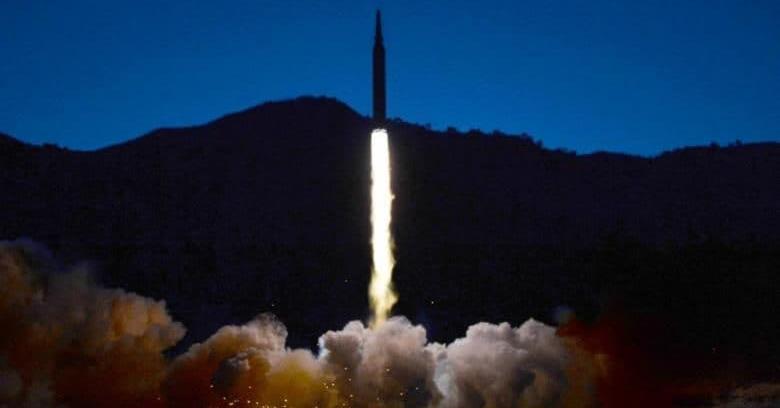SEOU, 30 Jan (Reuters) - North Korea launched at least one suspected ballistic missile into the sea off its east coast on Sunday (Jan 30), governments in the region reported, in what would be the nuclear-armed country's seventh test this month.
South Korea's Joint Chiefs of Staff reported that a projectile believed to be a single ballistic missile was launched at around 7.52am (6.52am, Singapore time) from North Korea's Jagang Province toward the ocean off its east coast.
The Japanese government also said North Korea had launched a "possible ballistic missile".
Jagang Province was the site of two earlier launches this month of what North Korea said was a hypersonic missile, which could reach high speeds while flying and manoeuvring at relatively low altitudes.
If confirmed, it could make January the busiest ever for North Korea's missile programme which analysts say is expanding and developing new capabilities despite strict sanctions and United Nations (UN) Security Council resolutions that ban the country's ballistic missile tests.
"The ballistic missile launch and the ones before it are a threat to our country, the region and the international community," Japanese government spokesman Chief Cabinet Secretary Hirokazu Matsuno told a televised briefing.
"This series of launches violate UN resolutions and we strongly protest this action by North Korea."
Mr Matsuno said that if the projectile was a standard ballistic missile it is estimated to have reached an altitude of 2,000km, flown for 30 minutes, to a distance of 800km.
In an address ahead of the New Year, North Korean leader Kim Jong Un called for bolstering the military with cutting edge technology at a time when talks with South Korea and the United States have stalled.
Since then, North Korea has conducted a series of launches displaying a dizzying array of weapon types, launch locations, and increasing sophistication.
From hypersonic missiles and long-range cruise missiles to missiles launched from railcars and airports, the tests highlight the nuclear-armed state's rapidly expanding and advancing arsenal amid stalled denuclearisation talks.
North Korea has not tested its longest-range intercontinental ballistic missiles or nuclear weapons since 2017, but the country's rulers suggested this month they could restart those activities.
Its latest launches included a test of two short-range ballistic missiles and their warheads on Thursday, and an update to a long-range cruise missile system was tested on Jan 25.
Pyongyang has defended the launches as its sovereign right of self defence and say they are not directed at any specific country, but accused Washington and Seoul of having "hostile policies".
Mr Kim visited a munitions factory last week, where he called for "an all-out drive" to produce "powerful cutting-edge arms," and its workers touted his devotion to "smashing ... the challenges of the US imperialists and their vassal forces" seeking to violate their right to self-defence, calling it "the harshest-ever adversity".


